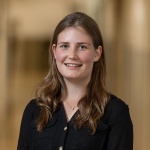228 applications were submitted to the Foundation for Innovation in University Teaching as part of the “Teaching Architecture” funding program, 80 of which were accepted. The University of Stuttgart came out on top against strong nationwide competition with two applications.
“The funding enables us to implement new ideas and initiate corresponding reforms for teaching,” says Professor Michael-Jörg Oesterle, Vice Rector for Teaching and Continuing Education. “Learning and studying require more interaction and flexibility in order to adapt to the challenges of our time. Our aim is to create a framework for this and thus develop a diverse and contemporary learning offer.”
A networked approach to teaching and learning
The University of Stuttgart will receive funding for its application “Networked Teaching and Learning for the Future” (INTERACT) and for the joint application “CampusConnect - Sharing Innovative Education”. With INTERACT, the University of Stuttgart aims to permanently integrate pioneering inter- and transdisciplinary learning formats into teaching. The aim is to teach students the ability to work in interdisciplinary teams and to develop practical solutions to complex challenges together with partners from science and society.
In the joint application “CampusConnect”, seven universities under the leadership of the TU Hamburg are developing cross-university learning scenarios to bring students and teachers together in the sense of a campus that can be experienced nationwide. The goal: more flexibility at an institutional and structural level. In practice, this means joint digital teaching and learning structures, flexible study programs and mutual recognition of academic achievements. In addition to the University of Stuttgart, the cooperation partners include Bauhaus University Weimar, HafenCity University Hamburg, RWTH Aachen and the Technical University Dresden.
About the “Teaching Architecture” funding program
The “Teaching Architecture” call for tender from the Foundation for Innovation in University Teaching aims to support innovative teaching structures at universities and thus strategically and structurally strengthen studies and teaching. The focus is on testing and institutionalizing innovative approaches that achieve a sustainable impact by reflecting on existing formats, new strategies and reforms. A total of 228 applications were submitted by 131 universities throughout Germany, of which 80, including 12 collaborative applications, were funded. A total of 71.6 million euros will go to 14 universities in Baden-Württemberg. The duration of the selected projects is up to six years. The decision was made on the basis of a science-based and criteria-driven review process.

Jacqueline Gehrke
Online Editor

